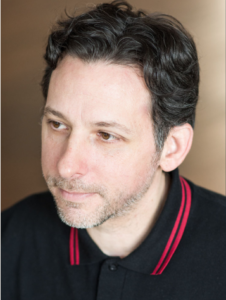

By Isabel Paris || Campus Life Editor
This past Thursday, Professor Nicholas Montemarano gave his Common Hour talk on his experience in fiction. Montemarano was nominated and awarded the 2019 Bradley R. Dewey Award for Outstanding Scholarship.His talk entitled, “Truth in Fiction” discussed his relationship between the world of fiction writing and how he incorporates truth in every aspect of his work. Montemarano has published numerous works including three novels and a collection of short stories.
He was the first professor to be hired as a creative writing professor in 2002 for the English Department. Since then he has influenced and impacted many students with his attention to detail and his kind encouragement towards the betterment of their writing.
Montemarano began his talk by describing himself and others as not “scholars” but “artists.” He found that it is the art that drives an individual not the academic achievements or desires but what a person finds impactful in their own works of art.
He then discussed a tattoo that he has on his arm that says Truth. He went into the story behind his tattoo and talked about how one of his inspirations, Tim O’Brien once came to his college and spoke to them about his own writing.
O’Brien introduced Montemarano to his idea of the “story-truth.” O’Brien when speaking to Montemarano’s school had told them this incredibly detailed story about his time in the war however he revealed, in the end, he had made it up.
This reveal threw Montemarano as he felt betrayed and lied too. However, Montemarano realized that this “story-truth” is what he can use in his own writing.
It was finding that tension between discovering the truth and honesty in a real life and then incorporating it into his own works of fiction that made him a better writer. Many of his works look into real situations and highlight either tragedies or scandals that show real human interaction.Montemarano finished up his talk by reading excerpts from his works in order to show this type of truth that he strives for in his work.
He emphasized his love for “giving a story to a side that is not always given.” Especially when he is writing, he said that he imagines himself always as the reader that way he can have a better understanding from the reader’s perspective.
He wrapped up his talk by answering a question he was asked regarding how he balances between listening to his editors and his own opinion. He said that when you’re writing anything, you need to know how “to your guns” but respect other voices. “Even when others may have helpful advice, at the end of the day it is your work.”
Junior Isabel Paris is the Campus Life Editor. Her email is iparis@fandm.edu.